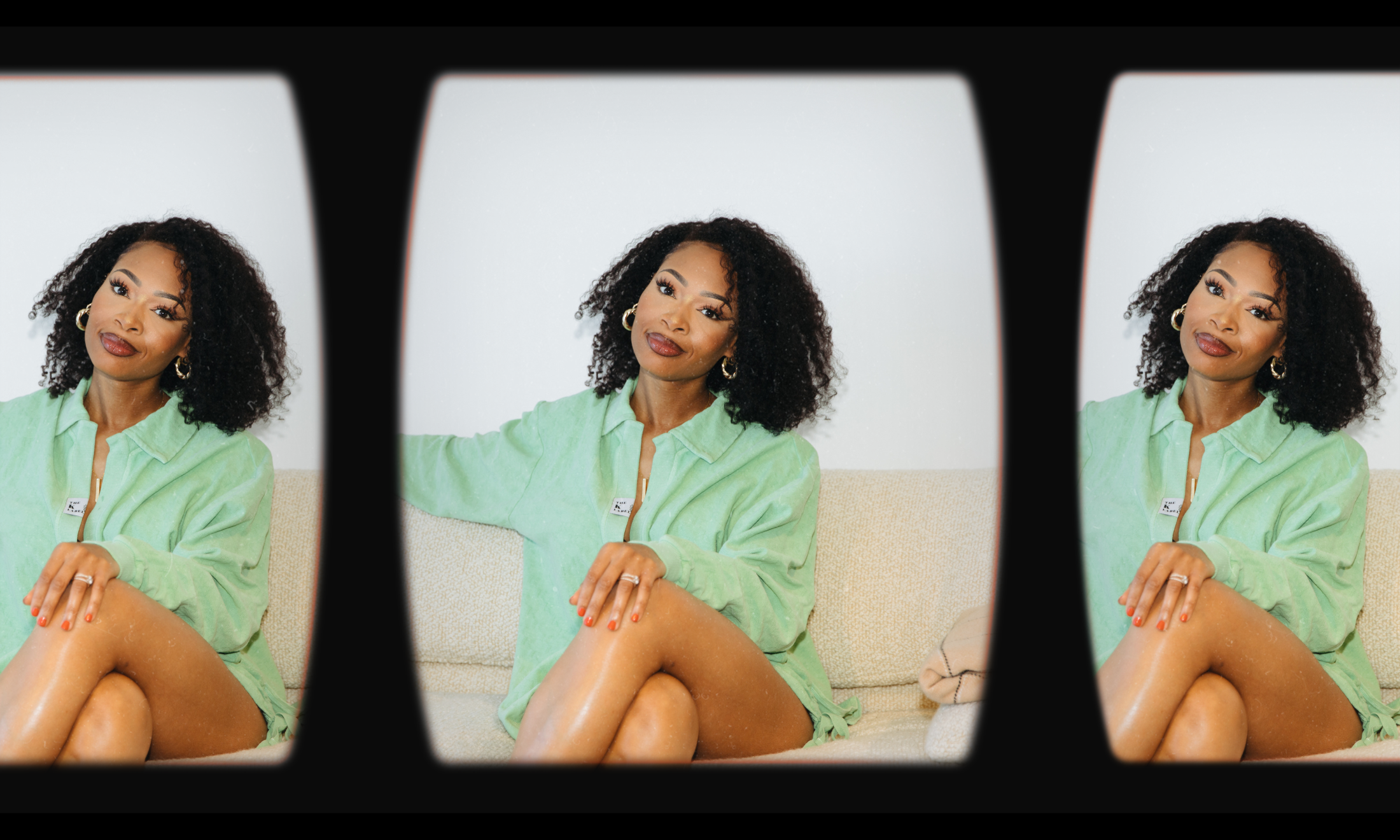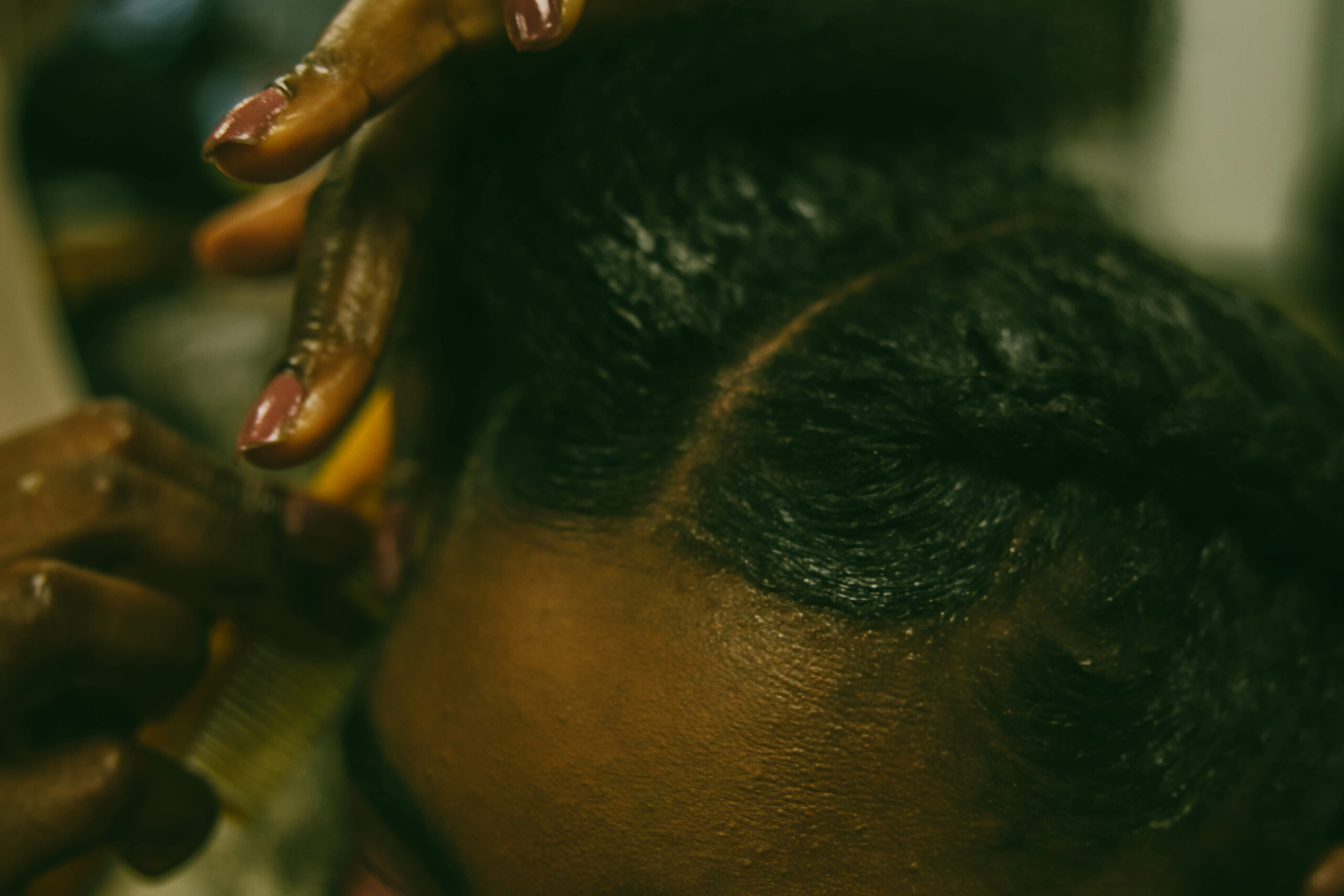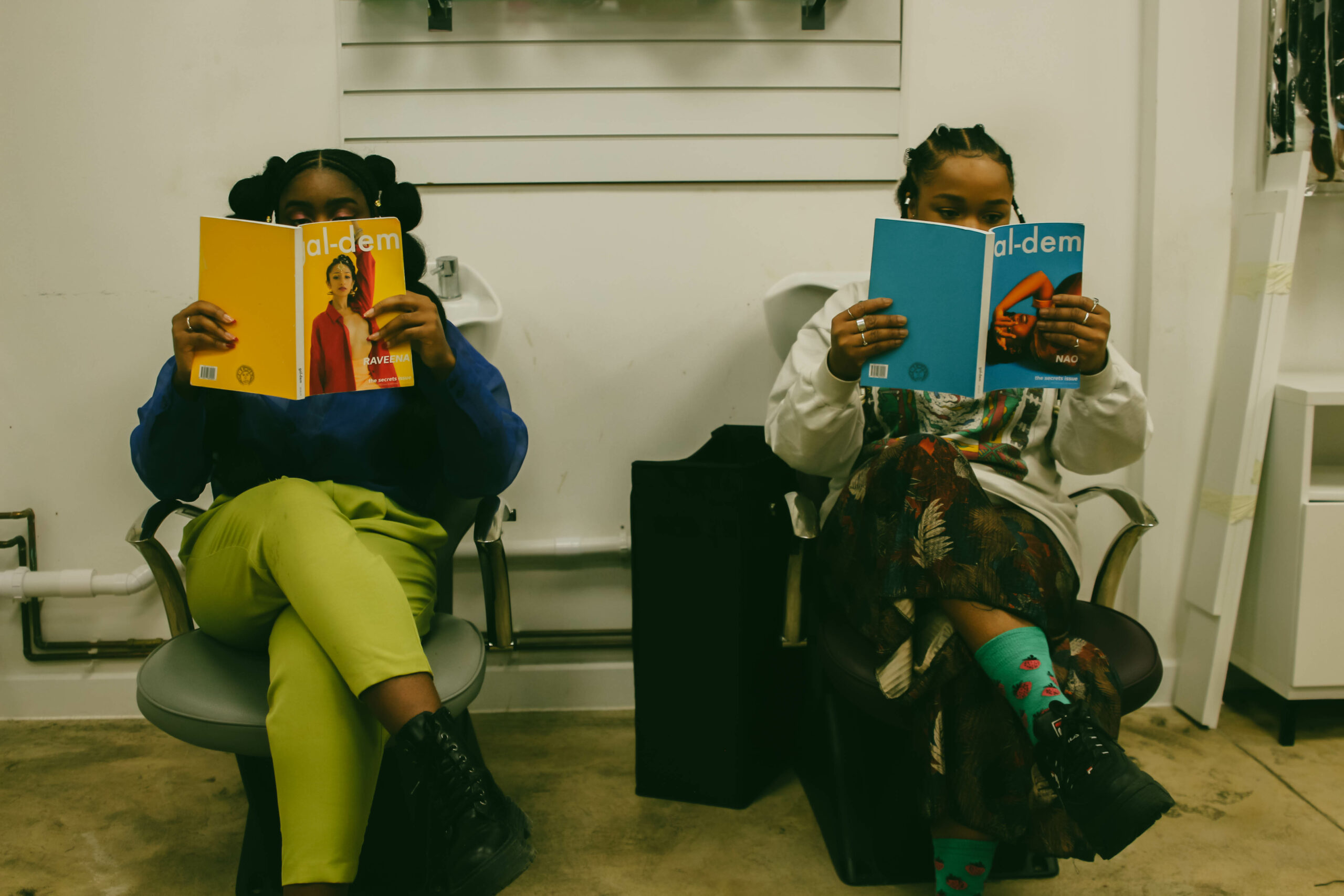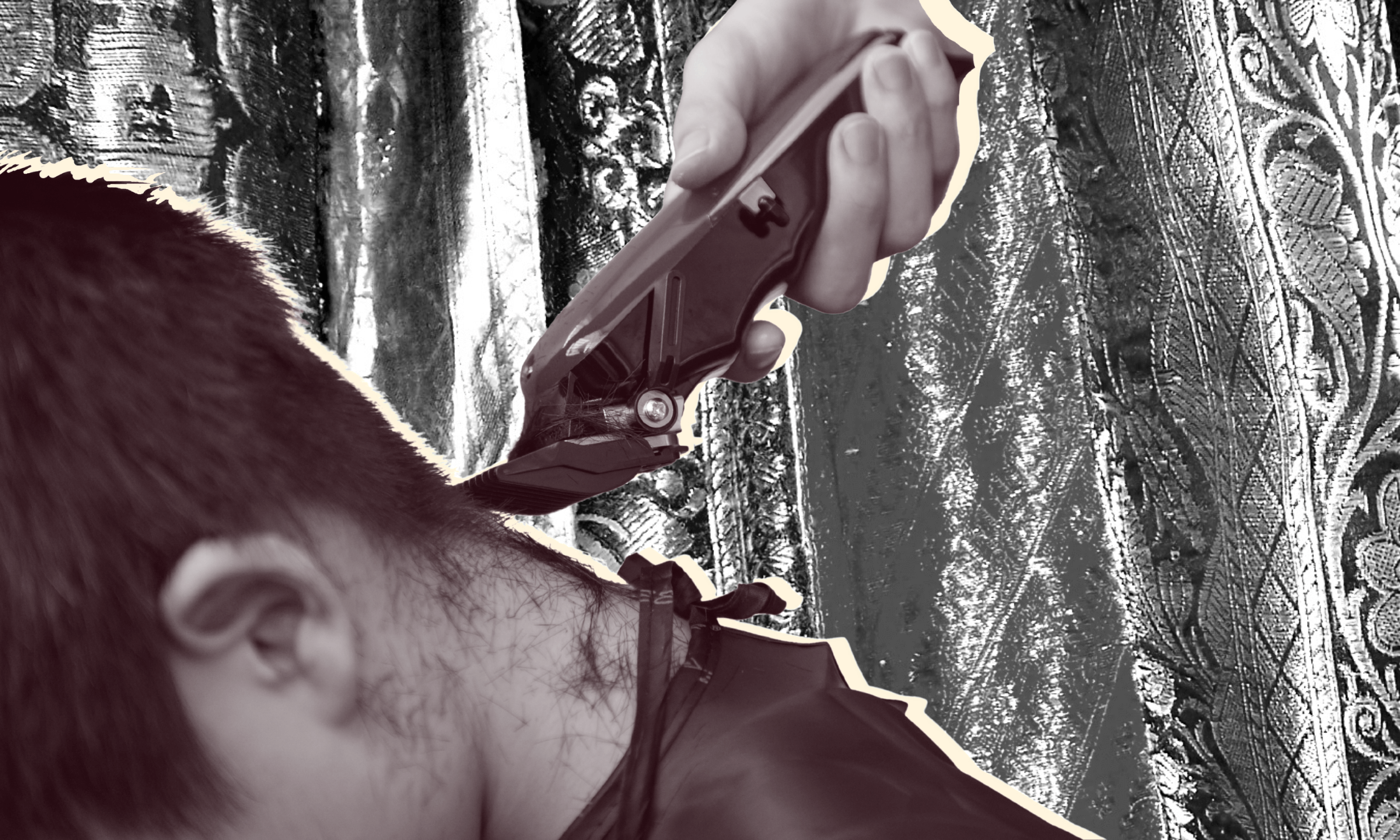The beauty industry is still ignoring Black hair. My report could change that
TreasureTress founder and CEO Jamelia Donaldson has worked to create the first official UK-focused textured hair trend report. Here’s what it reveals about the beauty industry’s treatment of Black women.
Jamelia Donaldson
09 Nov 2022

JKG Photography
At the age of 16, I remember googling “why doesn’t black hair grow” and stumbling across countless forums made by and for Black women in America with ridiculously long healthy hair. Then YouTube arrived and I discovered an even bigger community there. At that point, it validated for me that there isn’t anything genetically ‘wrong’ or different about Black hair and Black beauty. It’s just that we haven’t been taught to embrace, nurture and appreciate it.
After being frustrated by the inaccessibility of products I’d seen online, I realised that if no one else was going to solve this issue I should. So, I started my company TreasureTress, a monthly textured hair care subscription box, to normalise natural hair and make quality hair products accessible and affordable for women in the UK (and now beyond). I was inspired by the abundance of products available stateside, and equally disappointed in the options available here in the UK. I no longer wanted to pay £80+ to import products from the US. I wanted to be able to experiment and trial like other women. I wanted a box specifically for haircare in the UK — so I created it.
In October 2022, TreasureTress worked alongside Warwick University Business School professor Dr Laura Chamberlain and Translate Culture founder Mas Manima, to produce the very first official UK-focused textured hair trend report, ‘The untapped opportunity in the UK afro hair market’. Conducted with over 10,232 textured-hair respondents from our TreasureTress community, the report shares insights into hidden texture taxes, the failure of brand and retail diversity, and recent changes in hair habits post-pandemic. It offers both brands and retailers the chance to unlock better practices and understanding on how they can, and should do better to understand the nuances of this demographic.
“It’s unfair and discriminatory that products for all hair types do not have a place on all shelves”
The report confirms huge disparities in the beauty industry, particularly when it comes to haircare for Black women. 36% of Black women who responded to our survey said that they need to go to specialist shops to get all their health and beauty products. 47% of those with textured hair said that none of the top 10 high street hair care brands cater to their hair type. Products for textured hair are difficult to access and expensive. It’s unfair and discriminatory that products for all hair types do not have a place on all shelves.
In many ways, Britain always reminds us that those of us with textured hair don’t quite belong and aren’t quite the standard. During the pandemic, I saw how stores selling Black hair products were closed and were not deemed essential retail. Some stores opened illegally to later face fines. Even during the pandemic, there was still space for discrimination, and the needs of people with textured hair were deemed less important than the needs of others.
While Black consumers comprise 2% of the British population, we account for 10% of spend in the beauty industry in the UK. If brands actually acknowledged our economic power, there would be an increase in shelf space for Black women and textured hair in the aisles of supermarkets and high street health and beauty retailers providing as many options as there are for those with naturally straight hair.
Products are more difficult to access and they are often imported which can increase prices that are already high because of the nature of the ingredients needed. Products are also used more frequently, which increases the overall cost of hair care per individual. These factors combine to create a substantially increased cost for the naturally-textured hair consumer – a hidden ‘texture tax’. With this in mind, we need more hair care options for Black women at a variety of price points. This will require more ‘own brand’ products from stores and supermarkets for curly hair. Especially during the cost of living crisis, everyone should, if they need, have the option for £1 gel and £2 shampoo.
Ultimately, we’re calling for beauty to become a more equitable industry, and that’s why TreasureTress was created. We provide an antidote to the beauty industry’s lack of connection with their Black consumers. Now in our seventh year, TreasureTress is continuing to reframe the narrative around natural hair care in the UK and the way Black consumers view and reflect on their natural beauty, all while propelling the culture and Black hair care revolution forward.
We hope that the trend report becomes more than just a conversation starter. The events of summer 2020 proved how little action follows such conversations. Instead, it needs to be a catalyst for change. The data the industry has been waiting for is now readily available. It’s time for big brands to move outside of their organisations and comfort zones, and take counsel from those who have the lived experience, the data and insights to map out what’s next and what should follow.
The biggest reward for us all will be the consistent, gradual and authentic change in the industry. No more superficial campaigns – it’s time for the real thing.
To mark the release of the first official UK-focused textured hair trend report, TreasureTress is bringing its annual Pop Up shop to Birmingham from mid-November for the ultimate afro-hair retail experience. See more information here.
The contribution of our members is crucial. Their support enables us to be proudly independent, challenge the whitewashed media landscape and most importantly, platform the work of marginalised communities. To continue this mission, we need to grow gal-dem to 6,000 members – and we can only do this with your support.
As a member you will enjoy exclusive access to our gal-dem Discord channel and Culture Club, live chats with our editors, skill shares, discounts, events, newsletters and more! Support our community and become a member today from as little as £4.99 a month.









